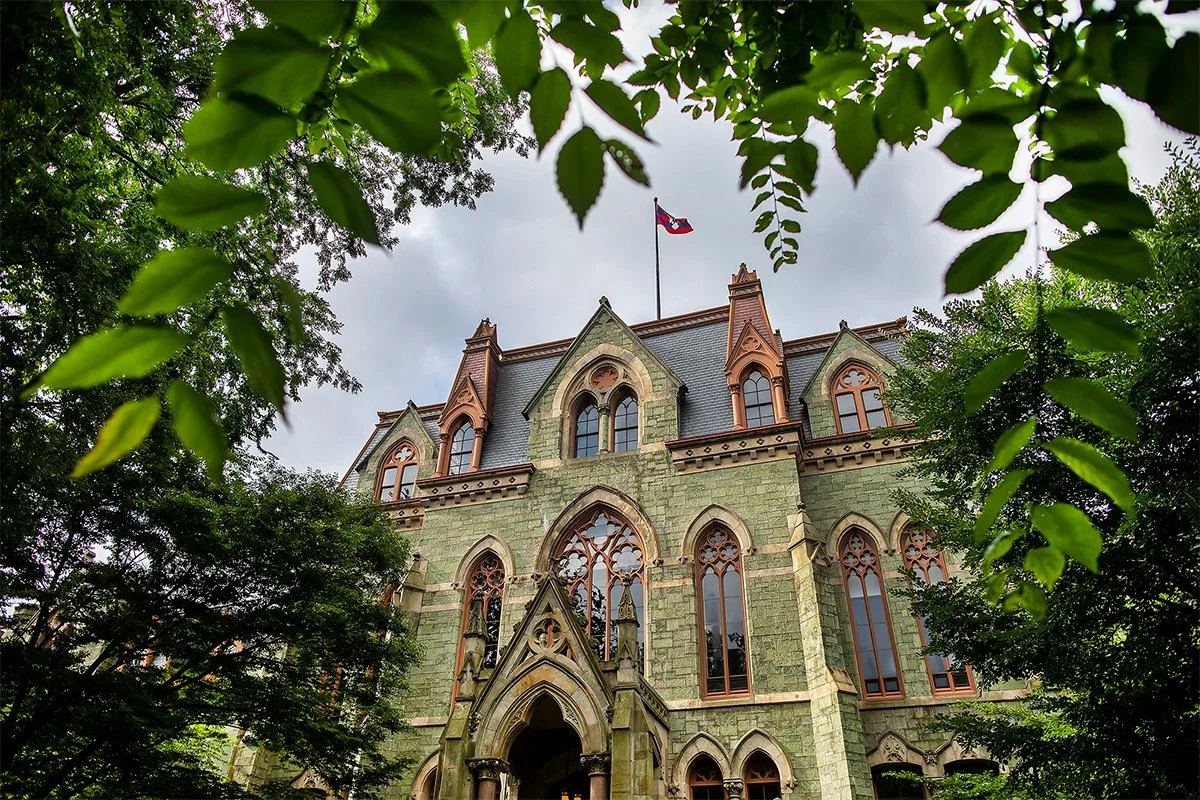SPONSOR SPOTLIGHT
Everything is connected in Penn’s Master of Philosophy in Liberal Arts
Every lifelong learner knows that the electives are the fun part of a degree. By choosing courses outside of your core discipline, you get to expand your sphere of knowledge, ignite your curiosity, and find meaningful connections between your work and the wider world.
In Penn’s Master of Philosophy in Liberal Arts (MPhil), all the courses you can choose offer that level of excitement and collaboration. Designed for students who have already completed a master’s degree, the MPhil allows students to work closely with an academic advisor and choose five courses from more than 50 academic disciplines across the University. With evening and online courses to suit your schedule, there are endless opportunities to fill in gaps in your knowledge, explore emerging interests, or create interesting juxtapositions that will make you a more flexible thinker and writer. For example, new MPhil students might consider the following course pairings to get started.
Want to explore world cultures through a global lens?
Pair EALC 5100: How to Look at and Write Asian Art with GSWS 5310: Gender in Western Travel Literature
Much of what we know about the world comes to us secondhand: whether or not we visit the Taj Mahal in person, our understanding and even our experience of this extraordinary site is influenced by what we've read or heard from previous travelers. How to Look at and Write Asian Art introduces students to the Taj Mahal and other major artworks from the Forbidden City to The Tale of Genji and examines how these culturally significant monuments and museum artifacts have been characterized over time. By the end of the course, students write thoughtfully and accurately about Asian art while still appealing to a general audience, as for a travel magazine. Gender in Western Travel Literature surveys travel writing from the age of pilgrims and conquistadors to Victorians on the Grand Tour to the present day, paying particular attention to the way gender influences how people travel, what they seek out, and how they characterize their cultural encounters for readers at home. Both courses are available in summer 2022; an MPhil student might take one or both to become immersed in cultural histories and critical writing.
Curious how art and cinema define community—on a local or worldwide scale?
Pair MLA 5020: Public Arts, Liberal Arts: Applied Ethnography and Community and ENGL 5920: Cinema and Globalization
Cinema and Globalization is a Proseminar, one of the program’s intensive seminars with small class sizes designed to maximize thoughtful discussions and feedback on student research, writing, and critical thinking skills. Offered in an online format ideal for incorporating multimedia into classroom discussions, this course explores narratives of globalization in films such as Lost in Translation and Y tu mamá también. This study of the worldwide movements of people, money, and culture may seem to contrast with the local focus of Public Arts, Liberal Arts: Applied Ethnography and Community Engagement, which explores Philadelphia phenomena including Mummers and First Fridays in Fishtown. Yet both courses are preoccupied with intersections—not only where academic disciplines converge but where communities small and large come together to tell stories about who they are. Taken together or separately, these intriguing seminars explore how people come to identify with places or feel a sense of belonging through art and narrative. Both courses are taught online in summer 2022.
Ready to get to the bottom of a literary mystery?
Pair ENGL 5380: Shakespeare and Co. and AFRC 5736/ARTH 5070: Fake
Authorship and identity are concepts that have challenged theorists and individuals. Who wrote Hamlet? Does a copy of the Mona Lisa have the same power over viewers as Leonardo’s painting? The Proseminar Shakespeare & Co. dismantles the concept of the solitary genius by exploring the ways William Shakespeare actively collaborated with other playwrights—and by examining some of the divergent variations and adaptations of the plays attributed to him. The topic of the Proseminar Fake varies each term, but always dives into the tantalizing topics of forgery, reproduction, and authenticity. Offered in fall 2022, these seminars interrogate the core concept of the author and investigate the importance of collaborators, adaptations, audiences, and other transactions in literature, performance and art.
Your ambition is the curriculum
Course offerings vary from term to term. The above pairings represent a fraction of what’s available to MPhil students in the upcoming summer and fall terms—and offer a sampling of the interdisciplinary coursework that characterizes Penn’s Master of Philosophy in Liberal Arts. Available on a full- or part-time basis, this advanced graduate degree opens doors across the University.
Contact our program director, Dr. Christopher Pastore, to schedule an appointment to review your current research and explore your options for pursuing a Master of Philosophy in Liberal Arts at Penn.
(215) 898-7326
lps@sas.upenn.edu
www.upenn.edu/mla-mphil


